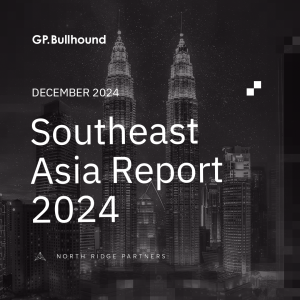Tech Thoughts Newsletter – 9 December 2022.

Market wise, it still feels like we’re in a fragile state, with good macro news (Jobs last Friday, ISM Monday) meaning a hawkish fed continuing and stocks (especially tech) reacting badly to the likelihood of higher rates. And China’s path from zero COVID remains uncertain. Conference season continued and we were in London meeting with many US tech companies at the Nasdaq technology conference. We also had November Taiwan numbers beginning to come through, including Hon Hai (Apple assembler) and TSMC.
The big news of the week was of course the launch of TSMC’s fab in Arizona. The announcement was around a second factory which will begin 3nm process technology in 2026. As a team we’ve been mulling over the possible implications and what it means for semis and tech structurally. In short, as it stands, this is more about short-term political posturing than anything that we think will be truly impactful to the structure of the industry. Firstly, our Twitter stream was full of tech companies and CEOs excitedly speaking about the announcement.

Tech sovereignty has been a bit of a theme of the year – and as we’ve commented before – it’s not only the US (though that’s the biggest cheque), but Europe, Japan, even Taiwan putting incentives in place.
For semis, the US is clearly a more costly region to manufacture in than Taiwan or South Korea (probably 30-40% more than Taiwan and ~20% more than South Korea). So there’s no doubt that government incentives are absolutely necessary to make the fab economically viable. In Taiwan, there is also clearly a much more established ecosystem of engineers (TSMC will be moving many Taiwan-based engineers to Arizona), and clean-room equipment that will take many many years to reach equivalence in the US. More simply, many of the reasons for moving broader manufacturing to Asia are true for semis too – around wages and environmental impacts and work culture. Logically, it makes very little sense for TSMC to build any fabs in Arizona!
In the short term, building more fabs will mean more semiconductor manufacturing equipment and will benefit the semicap equipment names which we own. Longer term though, It certainly isn’t clear to us that this is the start of a complete decoupling of semi supply chains, or that it will have much of a broader impact at all. The reality is that the targeted 600k wafer-out capacity for both US fabs capacity compares with TSMC’s current output of 15m wafers – ~4% of capacity. Even as a best case, the Arizona fabs will be producing 3nm chips in 2026 – that will be 4 years behind Taiwan. So however the US sought to spin this as a “game changer”, for us this was more politics than tech. Apple will eventually (probably in 3 iPhones Pro’s time…) be able to sell some iPhones with chips “made in America”…
On to company news – monthly sales data out showing still positive momentum in semis:
- Some Taiwanese numbers were out for November (the way the month falls we’ll have more next week too). Hon Hai was the one we were waiting for – its November sales were down 29% month on month and down 11% yr/yr. Clearly impacted by the China shutdowns although the fact that they didn’t cut the guide December quarter guide means Hon Hai have likely been able to reallocate production across their facilities fairly successfully. Overall less downside impact for Apple than feared, though their large dependence on China remains a sticky issue.
- TSMC (owned) reported its November sales this morning – very strong, up 6% month/month and up 50% yr/yr, continuing the strong trend. Given where the sequential December seasonality usually lands, as well as the extra week, it looks likely to us that Q4 numbers will beat consensus.
- UMC November sales were down 7% month/month from sustained high levels but still up 15% yr/yr – solid enough.
- Largan (iPhone Pro supplier) reported a slight month/month increase after already strong October numbers
- Delta – one of Infineon’s customers – reported sales slightly up month/month but still tracking up an impressive 30% yr/yr – autos still running full gas (so to speak…)
- China car sales were up again month on month after an extraordinarily strong October.
- More broadly in autos we can see an increasing drive from auto OEMs to launch BEVs in Europe in order to get to the mandated 50% EV sales by 2030. Toyota launched 5 new BEVs at its Forum last week (particularly striking as Toyota had always been the OEM resisting somewhat the move to EV).
Semis continuing to show strength
- Broadcom (owned) reported a very solid beat and guided ahead – its semiconductor business continues to be driven by its hyperscale customers still showing strong demand.
- And in the details there were also comments on strength in the North American and European auto market.
- The confidence on the call around the robustness of their business is clear – Their semiconductor business is fully booked for 2023 and backlog forecast is still increasing.
- Speaking to semi companies like NXP (owned) on ON Semi at conferences this week it was clear there has been no change in the end demand trends with auto and industrial demand remaining strong, sold out years in 2023 and continued price rises.
- Somewhat relatedly, the hyperscale players (Amazon, Microsoft, Google and Oracle) were jointly awarded a $9bn deal (Jedi) from the US Pentagon to build out cloud for the Department of Defense. A few years ago it was security which was most often talked about as the resistance to moving to cloud for all businesses. Quite striking how quickly that has changed..
Software reporting showed strength – in both top line and margins
- MongoDB reported stronger growth (particularly within Atlas) and importantly signs of operating leverage (albeit from pretty eye watering cost levels).
- In the DevOps space Sumo Logic beat and raised and particularly impressed on margins. GitLab too is impressing, growing revenues +70% yr/yr and expecting FCF breakeven in 2025.
Elsewhere, interesting for us, Digitimes reporting that Wingskysemi has just moved in its first ASML lithography machine at its 12 inch fab in Shanghai. Again, for us no reals signs that China is stopping its spending on semicap equipment…
Finally on Gaming, more twists to the Activision story as the FTC sues to block the acquisition of Activision Blizzard by Microsoft over concerns around competition. This comes despite Microsoft offering a deal to Sony (who are the big objector) and signing a deal with Nintendo to bring hit game Call of Duty to their platforms.
Microsoft is out defending its position. While we’re not always sympathetic to big tech defending quasi-monopoly positions, in this case, we’re inclined to agree that we’re so far from the end state of the gaming sector (with things like streaming, VR/AR at such early early innings – Google’s Stadia exit speaking to that in streaming), it’s impossible to see what future competition looks like and the risk of stifling innovation feels more destructive than any current consumer impact.
For weekly insights on the latest market updates, please subscribe to our Tech Thoughts podcast.
For more information about Tech Thoughts, please visit https://www.gpbullhound.com/tech-thoughts/.
We provide investors with access to category leading technology companies, globally. Our assets under management have a total value of more than €1bn, and our limited partners include institutions, family offices and entrepreneurs. Learn more about our funds here.
Enquiries
For enquiries, please contact:
Inge Heydorn, Partner, at inge.heydorn@gpbullhound.com
Jenny Hardy, Portfolio Manager, at jenny.hardy@gpbullhound.com
Nejla-Selma Salkovic, Analyst, at nejla-selma.salkovic@gpbullhound.com
About GP Bullhound
GP Bullhound is a leading technology advisory and investment firm, providing transaction advice and capital to the world’s best entrepreneurs and founders. Founded in 1999 in London and Menlo Park, the firm today has 12 offices spanning Europe, the US and Asia. For more information, please visit www.gpbullhound.com.



